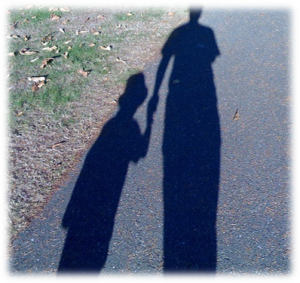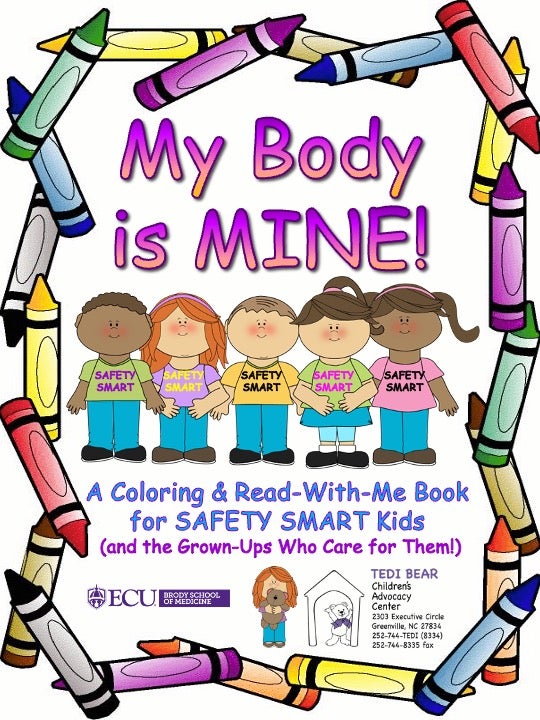Welcome to TEDI BEAR’s Parent Pages!
 Being a parent is great. But it is hard sometimes, even for the most caring mom or dad.
Being a parent is great. But it is hard sometimes, even for the most caring mom or dad.
We can all use some help. That is what you will find here.
The world can be a dangerous place, and many kids are abused. But they can often avoid being abused if they just know how. As parents, it is our job to teach them.
All parents need to learn about safety, and kids can begin learning safety lessons when they are very young. As kids get older, they can learn more. They need to learn more, because as they go out into the world they will face new risks and challenges.
Please click on the pictures below to see some great ways to keep kids safe. Talk about these lessons with your children. Praise them for learning, and remind them about the lessons so they don’t forget.
Remember that YOU are your children’s biggest advantage. Remind them that you want them to be safe and happy, and that they can always talk to you about their problems and worries.
That is one of the best things any parent can do. It also sets a good example for your children to follow when they become parents themselves someday.
For Parents of Babies & Little Kids
Here are some helpful tips on how to keep your baby, toddler, or preschooler safe.
One of the most common dangers for a baby is being injured by a caregiver. When kids get a little older, parents also need to think about the dangers of sexual abuse and bullying.
1. Be careful about who takes care of your baby.
You know how important it is to “baby-proof” your home.
It’s just as important to make sure that anyone you rely on to take care of your baby is safe and responsible.
2. Make sure your baby is never shaken.
It’s hard to put up with a crying baby. It’s easy to get frustrated and shake the baby.
But shaking a baby — even just a little — can cause brain damage. If you feel that you might shake your baby, step away and take a break!
And talk with anyone who cares for your baby. They need to have a plan to make sure the baby is NEVER shaken!
3. With young children, use positive discipline.
All children need to be disciplined sometimes. That’s one of our most important jobs as parents!
But discipline doesn’t always mean punishment. Though all parents get mad at their kids sometimes, it is important to not let our anger get the best of us.
Try positive strategies instead. You might be surprised at how well they work! And how they make it easier for everyone to be a little calmer.
4. Teach the correct names of all body parts.
All children are curious about their bodies, and about what makes boys different from girls. It’s good for parents to teach kids about their body parts.
But use the right names for all body parts, including the penis and vagina. Using cute, made-up names can make it harder for your kids to tell you if ever — someday — they are sexually abused.
Keep in mind that about one in every ten children is sexually abused at some point. Do everything you can to keep your child safe!
5. Talk with your children about body safety.
Body safety is about more than avoiding cuts and bruises. Kids also need to learn how to stay safe from sexual abuse.
Children need to be told that no one is allowed to touch their private parts, except to help them stay clean or healthy.
They need to know that they should say NO!! if someone tries, and that they should tell their parents or other trusted adults right away.
6. Talk regularly, and listen too.
As all parents know, kids need to hear lessons more than just once. So talk about body safety every now and then. The messages should be simple, and they don’t have to be scary. For example:
- Your private parts are any parts that are covered by your bathing suit or underwear.
- If anyone tries to touch your private parts, say NO!! and go to someplace you feel safe.
- Tell a parent or other trusted adult right away. Don’t worry that you will get in trouble, or might get someone else in trouble.
If kids have questions or concerns, or seem like they don’t like to be left alone with certain people, then listen carefully. Make sure your children know that they can always count on you to keep them safe.
7. Help kids to avoid confusion.
Many sexual abusers can seem friendly. They use special attention to gain the trust of children and their families.
This can be confusing for children, especially after abuse begins. Kids need to know they can talk with you when they are confused, especially about their bodies.
Watching this cartoon with your child may be a good way to begin talking about this important lesson.
8. Songs are a great way to teach!
Most little kids love to sing. You can sing with them to teach them their body parts. You might start with the song in this video, and then add some lyrics of your own.
Other songs, like Touches (mp3) and My Body Belongs to Me (mp3), can help you teach other body safety lessons. Here are some tips on how to use these songs. (PDF)
9. Activities and puzzles can also help you teach.
For example, you can click on this picture of My Body is MINE! to view and download a short book (pdf) to read with your child. When you’re finished, there are lots of pictures to color.
Puzzles are another great way to teach. They help kids to be more engaged, and sometimes help parents to feel a little less awkward when talking about this sensitive subject!
You might enjoy playing Body Safety Maze or Body Safety Word Search with your young child. Just click on the pictures below to download these puzzles in pdf format.
Remember, enjoy books, puzzles and other activities WITH your children!
Your children will learn a lot more, and you will improve your ability to talk about sexual issues with your children as they grow older.
10. As kids learn, use puzzles to review.
For example, you can click on the Word Jumble picture at right to download a puzzle (pdf) that you and your child can have fun solving while you talk about body safety. Body Safety Crossword is another terrific puzzle (pdf) that you and your kids might enjoy
If you have Microsoft Excel software on your computer, you can download computer-based versions of Body Safety Crossword (Excel) and Word Jumble (Excel). You can even customize the computer-based version of Word Jumble to help your child learn spelling and vocabulary words!
11. Try online games with older children.
For example, Orbit is an online game that was developed specifically to teach kids about sexual abuse, and about the importance of having trusted adults. Enjoy it with your child!
Orbit’s website also has many other resources for parents and teachers.
NetSmartz is another great website with lots of games and videos about staying safe from child sexual abusers online.
12. Teach kids to respect others’ body boundaries.
Children need to learn that everyone’s body boundaries need to be respected. This lesson will help kids to be safer, and will also help your child to get along better with others.
You might watch this cartoon with your child as a way of beginning the conversation.
13. Begin teaching kids about internet safety.
As soon as kids are old enough to go online, they are old enough to begin learning about internet safety.
Teach your children to think before they click, and especially to think before they give information to others.
Many child sexual abusers use the internet to lure kids. As children get older, they need to learn more about staying safe online.
14. Teach children how to cope with bullying.
No parent wants their child to be bullied. But it can be a very serious problem: Kids who are bullied are more likely to become victims of violence later in life, and sometimes they become violent themselves.
Children need to learn how to stand up for themselves in healthy, nonviolent ways. Knowing how to be assertive can help your child to be safer and more confident.
15. Make a family “no secrets” rule.
Teach your children that it is against your family’s rules to keep secrets, especially about touching.
Kids need to be reminded that if someone ever tries to touch their private parts, their parents will listen, take them seriously, and protect them.
16. Talk about kids’ body safety with other adults.
Talk with the parents of your child’s friends, and with your child’s teachers, coaches, and babysitters.
This may take a little courage, but don’t be shy! After all, anyone who cares for your children needs to be concerned about keeping them safe.
Some people may be surprised. But most other parents will share your concern, and will understand that you are just being a good parent.




